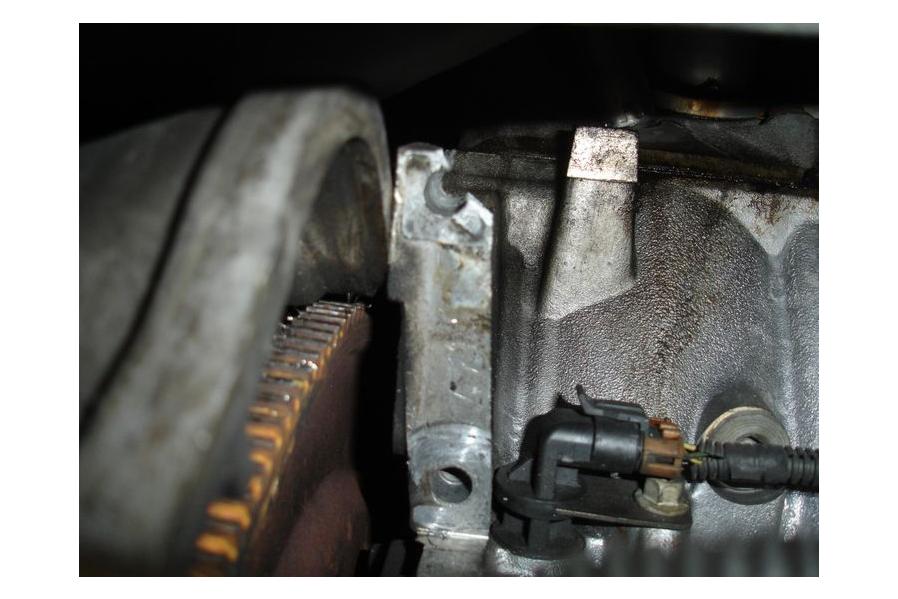Blog Posts
These Are The 15 Problems American Mechanics See The Most
There are some problems with cars that come up again and again - issues that American mechanics see the most, more than any other problem.
- Apr 20, 2020
Cars can be complex machines. With all those complicated, small moving parts having to work in conjunction with each other, not to mention enduring constant wear and tear, it's no wonder that things go wrong and cars need repair. Countless problems can exist when it comes to cars, from body damage and tire repair, to problems with heating and cooling and engine performance.
Routine maintenance is good to perform on a car to make sure everything is functioning properly, and it also helps to see if there are future problems about to develop. Some repairs are obvious, simple, and can be done by the driver or owner. Other repairs are misleading and confusing, and that's where mechanics come in. Mechanics take care of a lot of problems, and some are more common than others are.
Having to rebuild an engine or repair body damage can be an issue, but there are other problems like leaking radiators, damaged brakes, a dead battery, and cracked windshields that show up far too often.
15 Worn Tires
Check the tread on a vehicle's tires. Even if the tires aren't leaking or damaged, they can still be worn, and therefore ineffective in gaining traction on the road. Low tread depth greatly increases the chances of getting into a crash, which will cost drivers more than four used (or new) tires with fresh tread.
14 Clogged Filters
Filters can get gummed up and clogged with flaked off bits of metal to everyday grime. Transmission fluid can also get dirty over time, contributing to clogged filters. Because car transmission is supposed to be a closed system, too many contaminants warrant a new filter.
13 Warning Lights
Several warning lights exist on the dashboard, although not all of them equal the same severity. Check engine lights are the most common issue for car, truck and SUV owners in America, although the reason behind the check engine light could be anything. There are around 200 possible causes for a sensor triggering an error code. Have a mechanic complete a warning light inspection to determine the source.
12 Water Damage
Cars were not made to be amphibious, so water can severely damage them. When liquids leak into the transmission and water gets into the radiator, often from serious flooding, transmission failure can result. Water directly damages the components of the transmission system, producing rust.
11 Alternator Failure
Considering the alternator keeps the car's electrical systems intact while the car runs, it's bad news when the alternator fails. The alternator also supplies a charge to the battery to keep it in optimal condition. When an alternator breaks, the battery wears out prematurely as a result.
10 Excessive Oil Consumption
While a car will need fresh oil to stay functioning, it's problematic if it needs changes and top-ups more frequently than it should. When a car needs an oil change, a light comes on and corrosion builds in its engine. The oil filter is also often clogged, so change the filter when the oil is changed.
9 Overheating
Overheating is a massive problem with many causes: coolant leak, failed radiator fan, clogged radiator, broken drive belt, stuck thermostat, blown hose or a failing water pump. Under no circumstances should drivers continue to drive an overheated engine. The repair that would have been $250-$1,000 is suddenly $4,000.
8 Engine Sputtering
Engine sputtering is not a good sign or sound. The engine runs best when air and fuel properly mix and burn in the combustion chamber. Several system components have to work in unison to efficiently complete this process. Replace fuel and ignition system components to avoid the engine sputtering.
7 Stalling
Stalling can be a cause for concern when drivers are driving smoothly, and then the car suddenly stops in the middle of the road for what seems like no discernible reason. However, the main reason for the car stalling could involve a faulty fuel line, a faulty filter, or defective spark plugs.
6 Brakes Making Peculiar Noises
Brake noises are another bad sound. Although the brake system is intended to wear out after a while, when they display any symptoms of issues,like squealing, squeaking or a soft brake pedal, it's time to plan an immediate mechanic visit. Brakes are vital for safe stopping, so they should be replaced when the noises go from squeaking or squealing to grinding.
5 Radiator Leaks
Blame corrosion when the radiator leaks, although the root cause of corrosion will range from poor maintenance to factory defects to contaminated fluid. Generally, radiators will be replaced instead of repaired. Where the first leak goes, others will follow, as corrosion has already arrived. Try not to drive on a leaky radiator, as it leads to overheating and even an engine fire.
4 Cracked Windshield
It's hard to see out of a cracked windshield, although it's difficult to make that happen in the first place. That said, many car windshields roll off the assembly line with stress defects that make them more vulnerable to damage. Small cracks are mainly cosmetic, but larger cracks can compromise the vehicle's structural integrity.
3 Dead Battery
Dead batteries need to replaced for the car to run, though a good battery is supposed to last about three years or 50,000 miles. Reduced electrical currents naturally decrease as the battery loses its ability to maintain a charge, leading to battery failure. Try to replace the battery after it hits the aforementioned milestone, even if it shows no signs of damage.
2 Exhaust Smoke
Exhaust smoke is no fun to look at or to smell, but too much of it indicates engine trouble. While colored exhaust is normal in the winter, it otherwise can indicate a problem. White smoke indicates leaking coolant, while blue smoke indicates oil getting into the combustion chambers.
1 Broken Starter Motor
A broken starter motor means the starting process can't begin, as the motor is responsible for cranking the vehicle's engine over and beginning the starting process. A damaged electrical solenoid or another electrical fault is usually the culprit for a broken starter motor. Sadly, it's hard to predict when a starter motor will break.



